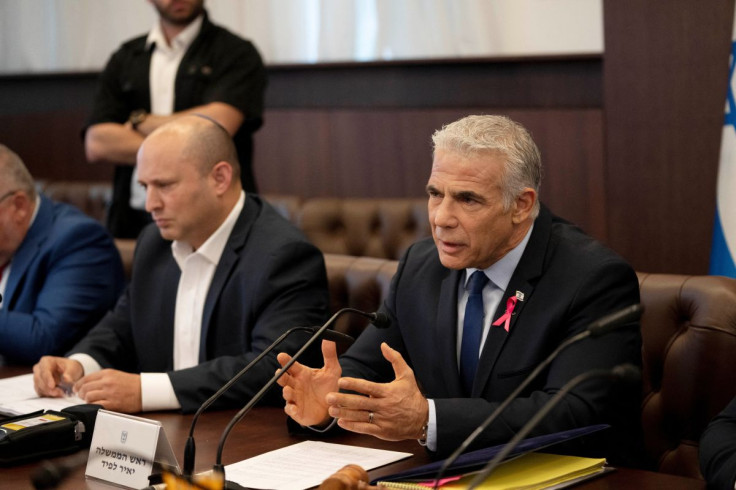Proposed Mediterranean Gas Pact A Fresh Start For Lebanon And Israel

More than ever, the maritime border row between Lebanon and Israel seems within reach. The proposed pact, brokered by the U.S., could act as a game-changer for both Mediterranean nations, who have been in a state of war for seven decades.
With the proposed pact, the border between Israel and Lebanon which is perennially tense will change and will defuse maritime disputes in the Eastern Mediterranean Sea, involving gas fields.
The biggest beneficiary of the proposed pact would be the 27-member European Union (EU), which is lessening its reliance on Russian supplies.
The U.S.-sponsored maritime agreement would pave the way for gas exports from the Eastern Mediterranean waters to the European Union.
As part of diversifying Europe's energy supplies, Washington ramped up its shuttle diplomacy between Beirut and Tel Aviv in February this year after Moscow's invasion of Ukraine.
Israel can earn a significant portion of gas exports to the EU as the demand is skyrocketing after the Russian invasion of Ukraine. In June 2022, the EU signed energy deals with Israel and its Mediterranean neighbor Egypt.
As far as Lebanon is concerned, the proposed maritime deal can help boost its economy, which is on the brink of bankruptcy, plagued by power outages, widespread protests, and a port explosion in 2020 that claimed more than 200 lives. Lebanon is of the view that failure to develop its own natural gas industry has affected its economy.
This terrible downturn has forced the Lebanese resistance movement Hezbollah, which remains hostile to Israel, Lebanon's southern neighbor, to fall in line. With the economy in deepening distress, Hezbollah has decided to abide by the pact put forth by the U.S.
"We support the Lebanese position so that we safeguard our right to demarcate our maritime borders and invest in our gas," Reuters quoted senior Hezbollah official Mohammad Raad Oct. 2.
Since its inception as an armed resistance outfit to Israeli attacks on Lebanon 35 years ago, Hezbollah, which operates as the most powerful non-state military group in the world, has developed into an institution that provides a host of services like health and education to the country's neediest and enjoys cordial ties with Iran, which has not gone well with Saudi Arabia and the United Arab Emirates (UAE).
Originally leery about entering electoral politics, the Hezbollah (Party of God) holds vast influence in the political field and currently plays a decisive role in Lebanon and has entered into poll pacts with mainstream parties.
Israel has invaded Lebanon at least three times and captured much of Lebanon's south for 18 years until forced out by Hezbollah in 2000. Israel and Lebanon have no diplomatic ties and their land border is patrolled by the United Nations.
Their maritime row covers 860 square kilometers of the Mediterranean Sea with lucrative offshore gas fields. Recent discoveries that the Eastern Mediterranean is rich in natural gas have further fuelled the feud between Israel and Lebanon and other Mediterranean nations like Cyprus, Greece, and Turkey.
Negotiations between Lebanon and Israel over the disputed Karish gas field in the Eastern Mediterranean Sea began in 2020 but stalled in May 2021 as Lebanon insisted that the map used by the United Nations in the talks be modified.
Israel claims the Karish gas field lies in its exclusive economic zone and that it has a right to develop it.
Under the U.S.-brokered deal, while Israel can develop the Karish gasfield, Lebanon can develop the nearby Qana gasfield, which is also claimed by Israel.
Under the proposed pact, the gas would be produced in the disputed Qana facility by a company under a Lebanese license, and there will be compensation for Israel.
The proposed deal -- details of which have been kept under wraps -- is expected to be signed before the current President Michel Aoun, who met with U.S. ambassador to Lebanon Dorothy Shea on Oct. 1, completes his term on Oct. 31.
If approved, it will be passed to the United Nations to be validated in accordance with international law.
However, there are hurdles in both nations. On the Israeli side, it will be difficult for the current Prime Minister Yair Lapid, who is facing polls next month, to strike a deal indirectly with Hezbollah.
Already, Benjamin Netanyahu, the opposition leader, has termed it a sellout of Israeli interests and hinted at rolling it back if voted to power.
In Lebanon, the outgoing president has lots of political opponents and some of them do not want to lend any sort of political capital before he exits office this month.
The deal will bring together Israeli and Lebanese gas platforms within a short distance, thus making it difficult for both nations to target each other's offshore facilities.
In fact, the proposed agreement could serve as a de-facto termination of the state of war between the two nations.
























